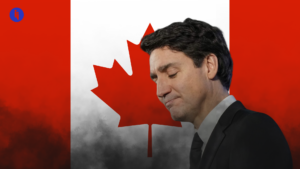🌍 Five (exceptionally accurate) predictions for 2023
International Intrigue & the Atlantic Council get you ready for the coming year

Hi there Intriguer. Happy New Year! We’re delighted to be back at it today, serving you up a dish of our hottest takes for 2023.
This year, the world according to Intrigue will see China dominate rare earths, Elon Musk clash with Europe, and the Middle East become (even more) volatile. We’ve also included the results of what you voted as the most likely events in 2023.
🙏 If you want to help us start the year on the best note, we’d love it if you could introduce a friend to International Intrigue! You can click on the share icons above or scroll down to the bottom to get your personalised referral link.
1. NORTH AND CENTRAL ASIA
💎 China will set up an OPEC-style cartel for rare earth minerals

“The Middle East has oil. China has rare earths”. China’s next move in its self-reliance playbook could be setting up a cartel that gives it the power to price and govern the world’s rare earth minerals.
This move takes its inspo from OPEC, the group of 13 oil-exporting countries which basically dictates the price at your local pump. A China-led ‘rare earths OPEC’ (OREEC?) would impact the global economy – most notably the global defence industry – because rare earths are critical for powering a lot of cutting-edge technology.
Why it will happen:
- A rare earths cartel would give China leverage over the US, particularly after the latter passed laws in 2022 prohibiting China from accessing high-tech chips.
- It’d be easy for China to execute. China already dominates the rare earths industry, commanding majority market shares of the world’s rare earths raw supply and processing capabilities (more than OPEC ever held in the world’s oil market).
Why it won’t happen:
- There will be more competition from countries who don’t share China’s views, like Australia, the US, and Japan, who are (slowly) developing their own rare earths extraction and processing capabilities.
- It’s not the right time. China might not want to play this card yet, having just emerged from a three-year zero-Covid lockdown that hammered its economy. Instead, it might focus on regaining some stability domestically and abroad.
Your predictions: Like us, 41% of you think China will set up a cartel for rare earths in 2023.
🟨🟨🟨🟨⬜️⬜️ 🇵🇰 Imran Khan returns to power in Pakistan
🟩🟩🟩🟩🟩🟩 🇨🇳 China sets up an OPEC for critical minerals
🟨🟨🟨⬜️⬜️⬜️ 🇹🇼 Taiwan hosts US President Joe Biden for a visit
🟨⬜️⬜️⬜️⬜️⬜️ 🤝 Armenia and Azerbaijan will reach a peace deal
Top comment: “Taking on China generally has bipartisan support in the US Congress. A Biden visit to Taiwan could send a strong message to Chinese President Xi, as well as wedging Republicans – do they express rare support for Biden, or attack him?”
2. EUROPE
🐦 The EU will ban Twitter, if only temporarily

The EU Commission is on the warpath against big tech, and we suspect more than a few officials would relish a showdown with a Silicon Valley giant that thinks it’s above the law. Enter Elon Musk’s Twitter, the embodiment of big tech’s ‘move fast and break things’ ethos.
We predict that Twitter will run afoul of European privacy/content moderation laws but will refuse to fix the problem, leading the EU Commission to block Twitter until the two sides reach a settlement.
Why it will happen:
- The EU Commission’s Vice-President for Values and Transparency Věra Jourová has already warned Musk that kicking journalists off the platform could see Twitter banned under the EU’s Digital Services Act (DSA).
- Even though the EU accounts for ~20% of all Twitter users, Elon Musk might see this as a chance to take a very public stand against government regulation.
Why it won’t happen:
- Technically, the DSA won’t come into effect until 2024. That notwithstanding, not even the EU is bold enough to ban Twitter outright if for no other reason than most of the political class use it to develop and communicate their opinions.
- We fully expect conflict between the EU and big tech, but Twitter doesn’t need any new (or more) trouble, and you’d have to think the rest of its executives will want to keep their heads below the parapet.
Your predictions: You don’t agree with us that the EU will crack down on Twitter. Instead, a whopping 43% of you are predicting the downfall – intentional or otherwise – of Russia’s beleaguered president.
🟩🟩🟩🟩🟩🟩 🇷🇺 Something… will happen to Russian President Vladimir Putin
🟨⬜️⬜️⬜️⬜️⬜️ 🇬🇧 Boris Johnson finds his way back into 10 Downing street
🟨🟨🟨⬜️⬜️⬜️ 🇹🇷 Turkey seizes a Greek island
🟨🟨🟨⬜️⬜️⬜️ 🇪🇺 The EU bans Twitter
Top comment: “If Turkey seizes an island, it hardens its control of the Dardanelles and Straits, it flexes its muscle toward Russia, and it avoids a potential NATO intervention because both are NATO members. All this will occur in the context of the US playing parent to fighting siblings via military exercises or some other influx of money and attention into the region.”
TODAY’S SPECIAL EDITION IS PRESENTED BY THE ATLANTIC COUNCIL
Attend the Atlantic Council Global Energy Forum in Abu Dhabi
The world’s top energy and foreign policy decision-makers convene for the 7th annual Global Energy Forum to set the global energy agenda for the year ahead and examine the longer-term geopolitical and geo-economic implications of the changing energy system.
- This year’s Forum will take is significant as the United Arab Emirates prepares to host COP28.
It will feature the benefits of in-person networking, private roundtable discussions, panels, workshops, and receptions in Abu Dhabi, as well as the global reach of virtual programming.
3. SOUTHEAST ASIA & THE PACIFIC
🧨 Sticks and stones will turn into guns and bullets along India’s border with China

India and China are not the best of neighbours. The 3,488-kilometre border between the two nations is poorly demarcated and often the site of violent skirmishes, with each side usually using rudimentary weapons to keep the other at bay.
While demilitarised zones have been set up along the border to avoid escalation, a more serious conflict remains only one bullet away.
Why it will happen:
- Tensions remain high despite the precautions: the latest skirmish occurred just last month.
- Seventeen rounds of military talks held after the deadly 2020 Galwan Valley clash have failed to restore normalcy along the border, meaning further militarisation is in the cards.
Why it won’t happen:
- Neither country is interested in escalating their border rivalry: China is busy navigating its reemergence from zero-Covid, and India is focusing on its economic growth.
- The two countries have kept communication lines open, which mitigates the likelihood of any incident escalating into a more serious military confrontation.
Your predictions: Coalitions can be notoriously unstable forms of government, which is why over 30% of you believe Fiji’s governing coalition may collapse this year.
🟨🟨🟨🟨⬜️⬜️ 🇮🇩 Indonesian government abandons plans to build its new capital
🟩🟩🟩🟩🟩🟩 🇫🇯 The newly-elected governing coalition in Fiji unravels
🟨🟨🟨🟨🟨⬜️ 🧨 Sticks and stones turn into bullets along India’s border with China
🟨🟨🟨🟨⬜️⬜️ 🇧🇩 Protestors force Prime Minister Sheikh Hasina to step down
Top comment: “Indonesia has suffered so many natural disasters that it is hard to imagine putting money and effort into this building project.”
4. THE AMERICAS
🤝 US President Joe Biden will meet Venezuelan President Nicolás Maduro

A meeting between US President Joe Biden and his Venezuelan counterpart Nicolás Maduro is unlikely but not unthinkable. Small but significant steps have already been taken to rekindle the relationship between Maduro’s government and the US – the two negotiated a prisoner swap, and US giant Chevron has been permitted to restart operations in Venezuela.
Why it will happen:
- Maduro is strutting into 2023 with renewed confidence in his position: several friendly Latin American leaders are now in power, oil prices are high, and Washington is considering warmer relations.
- The Venezuelan opposition also recently voted to disband a US-backed interim government, which means Washington has little choice but to engage with Maduro directly.
Why it won’t happen:
- A photo of Biden and Maduro shaking hands would undermine Biden’s pro-democracy stance and push some Latin-American voters further away from his Democratic Party.
- Maduro has done little to guarantee press and political freedoms in Venezuela, so a visit from Biden would also undermine the US’s leverage in future negotiations.
Your predictions: 39% of you believe that an international peacekeeping mission to Haiti is the most probable event for the region, but a Biden-Maduro meeting isn’t far behind.
🟨🟨🟨⬜️⬜️⬜️ 🇸🇻 The Salvadorian military removes President Nayib Bukele from power
🟨🟨🟨🟨⬜️⬜️ 🇻🇪 US President Biden meets Venezuelan President Nicolás Maduro
🟩🟩🟩🟩🟩🟩 🇭🇹 International peacekeepers land in Haiti
🟨⬜️⬜️⬜️⬜️⬜️ 🇵🇪 Pedro Castillo is reinstalled as Peru’s President
Top comment: “Notwithstanding the historical context, peacekeepers have to go to Haiti, right? It doesn’t get much coverage in the media, but what’s going on there is utterly horrific, and I think there will be an event – something even worse than the usual – that forces the UN’s hand.”
5. MIDDLE EAST & AFRICA
🧶 The Abraham Accords will unravel

The Abraham Accords normalised relations between Israel and several Arab neighbours: first with the United Arab Emirates (UAE) and Bahrain, and then with Morocco and Sudan.
But just two years on, the Accords are starting to lose support, especially among Arab citizens. According to the Associated Press, support for the Accords has fallen from 47% to 25% in the UAE and from 45% to 20% in Bahrain since they were signed in 2020.
Why it will happen:
- Far from bringing Israel and its Palestinian neighbours closer to peace, as signatories hoped, the prospect of a two-state solution is looking increasingly distant.
- Israel’s new right-wing government will only worsen things – its new national security minister recently visited Temple Mount and drew widespread condemnations.
Why it won’t happen:
- The Accords are lucrative for Arab signatories. Under the deal, Israeli tourists have flocked to the Arabian Gulf and Morocco, and billions in high-tech security assistance have flowed from Israel and the US.
- Working-level ties between the Arab states and Israel are still solid. Last month, the UAE’s Ambassador to Israel welcomed some of the new government’s most provocative figures to the UAE’s newly-minted embassy.
Your predictions: You narrowly agreed with us (31%) that the unravelling of the Abraham Accords was the most likely event in the Middle East/Africa this coming year.
🟩🟩🟩🟩🟩🟩 🇮🇱 The Abraham Accords start to unravel
🟨🟨🟨🟨⬜️⬜️ 🇮🇷 Iran’s Ayatollah flees the country
🟨🟨🟨🟨🟨🟨 ⬆️ The African Union joins the UN Security Council member
🟨🟨🟨⬜️⬜️⬜️ 🇳🇬 Nigeria elects Peter Obi as its next president
Top comment: “Now wouldn’t that be nice for everyone who has the misfortune to live under the Ayatollah’s regime. And about b*****y time.”
See you next week!









